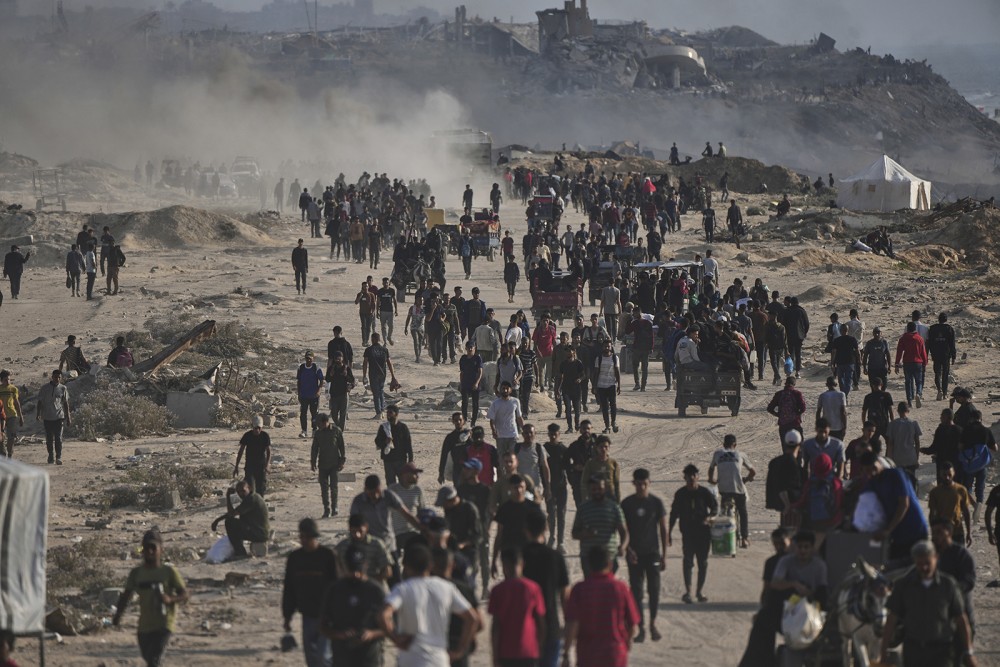'Convince people that peace is possible,' says Gaza Catholic parish priest

Displaced Palestinians walk past the ruins of destroyed buildings along the Gaza City shoreline on June 9. (AP Photo/Jehad Alshrafi)
In a recorded message, the parish priest of the only Catholic Church in Gaza spoke about the struggles of the roughly 500 refugees sheltered there, including 50 children, as hope dwindles amid continued bombings by Israeli forces.
“While the bombings continue, unfortunately the situation will continue to worsen,” said Gabriel Romanelli, the Gaza parish priest, adding that every bomb “means more death, more injuries, more destruction, less hope from a humanitarian point of view.”
Romanelli’s recorded remarks were shared during a meeting of Italian journalists in Ascoli Piceno, Italy, on June 10. Pope Francis would call the Gaza parish every evening at 8 p.m., even during his hospitalization at the Gemelli Hospital in Rome, placing the church under the international spotlight. The parish continues to ring its bells at the same hour to remember those calls, known affectionately as the “pope’s hour.”




